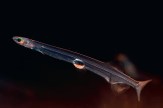Giant eels and rare penguins: Northeastern University co-ops get a crash course in marine science at the New England aquarium
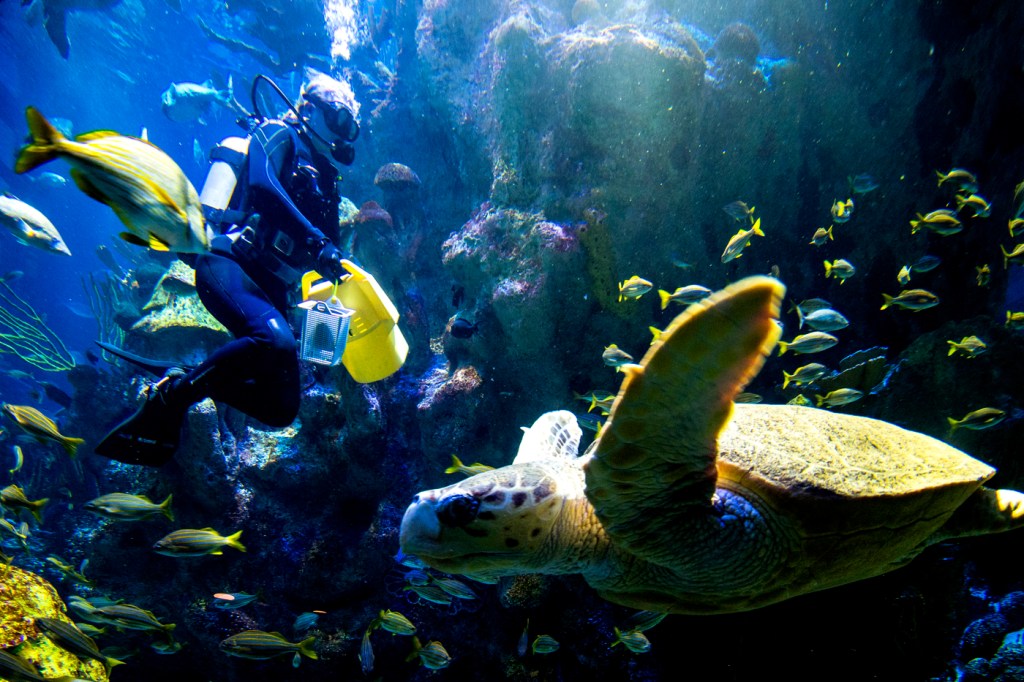
Abigail Campbell sinks down past vibrant coral heads towards a sandy clearing, trailed by a collection of brightly colored fish hoping for a meal. As she swims, a large moray eel over five feet in length emerges from a nearby crevice. Its vibrant green body ripples through the water behind her. Campbell pauses and opens the blue bag she is carrying. The eel, named Marilyn, eagerly plunges her head inside for her morning meal.
“Before I really got used to it, I got a little nervous,” says Campbell, a second-year student at Northeastern’s College of Science. “Marilyn is definitely our largest eel, and she’s the one who gets the most excited about food as well.”
Campbell is one of three second-year Northeastern students doing co-op at the New England Aquarium, where they are getting a crash course in marine science and conservation.
She is working as an aquarist for the giant ocean tank, a replica of a Caribbean coral reef ecosystem in a cylindrical tank that stretches through all four floors of the aquarium. She wasn’t sure of where she wanted to end up when she started the co-op, but spending several months caring for over 100 species of fish and several sea turtles has given her the direction she was looking for.
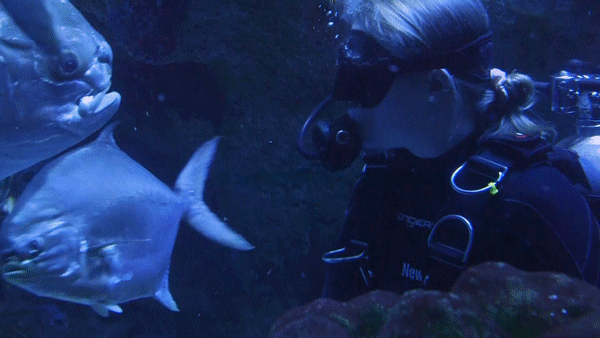
“Now that I’ve had this experience, I’m thinking about vet school. Definitely in the conservation field, though, and definitely with marine life,” Campbell says. “The aquarium is connected to the Quincy Research and Rehabilitation Center where they do a bunch of turtle rehabilitation and releases into the wild. That’s definitely the road I want to go down.”
Campbell dives in the aquarium exhibit up to five times each day to make sure all the animals are fed and healthy and the exhibit stays clean.
The job is a lot of fun, but Campbell has also had an opportunity to step into a leadership role, managing the volunteers and making sure that many of the daily tasks get done.
“The co-ops go through this evolution of learning the ropes from everybody, and then it’s their time to do some leading,” says Michael O’Neill, the supervisor for the giant ocean tank. “They take over as the point person for the daily operations for a lot of the tasks that we do.”
Down on the first floor of the aquarium, two other Northeastern co-ops are also making sure their charges are nourished and happy.
Megan Cullis, a second-year biology student, kneels on a rocky island in the penguin exhibit, holding a small silver fish in her outstretched hand. A southern rockhopper penguin named Diego briefly inspects the fish before swallowing it head first and looking for seconds.
She loves feeding the penguins, Cullis says, but she likes engaging with visitors and discussing the conservation side even more.
“I love that educational aspect of it,” Cullis says. “I like getting to connect with people and answering their questions and seeing them get excited about being here. It gets me excited about being here, too.”
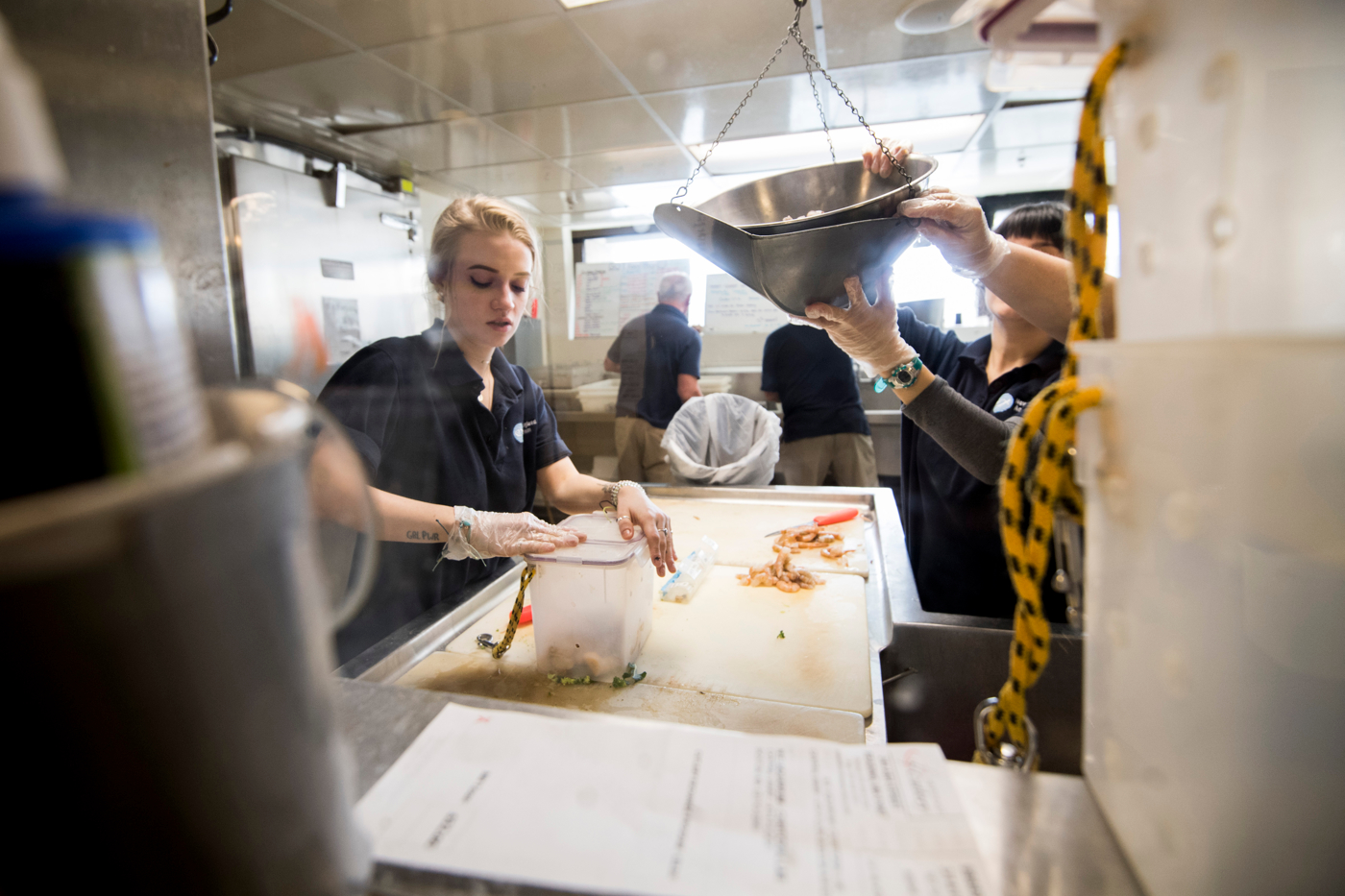
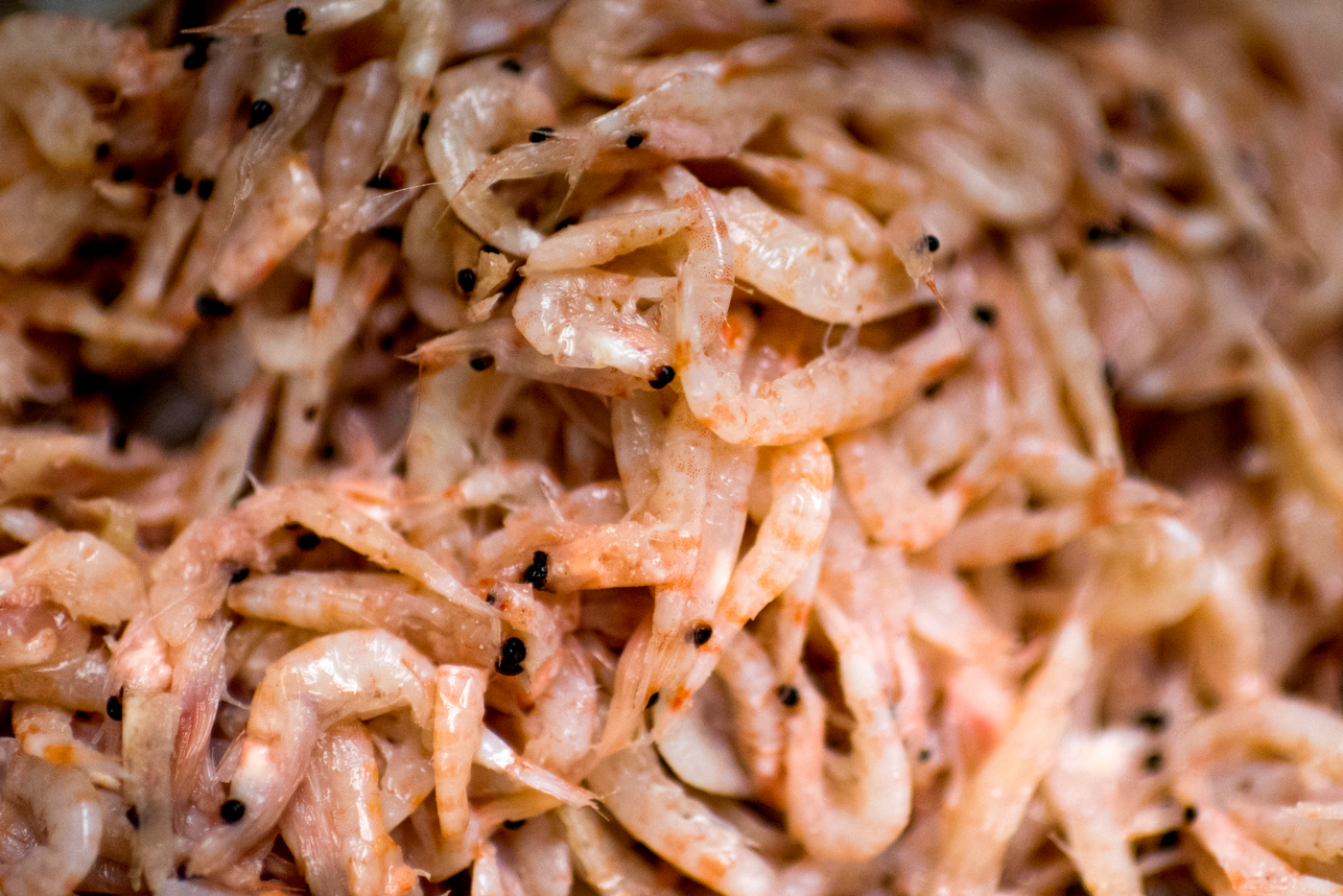
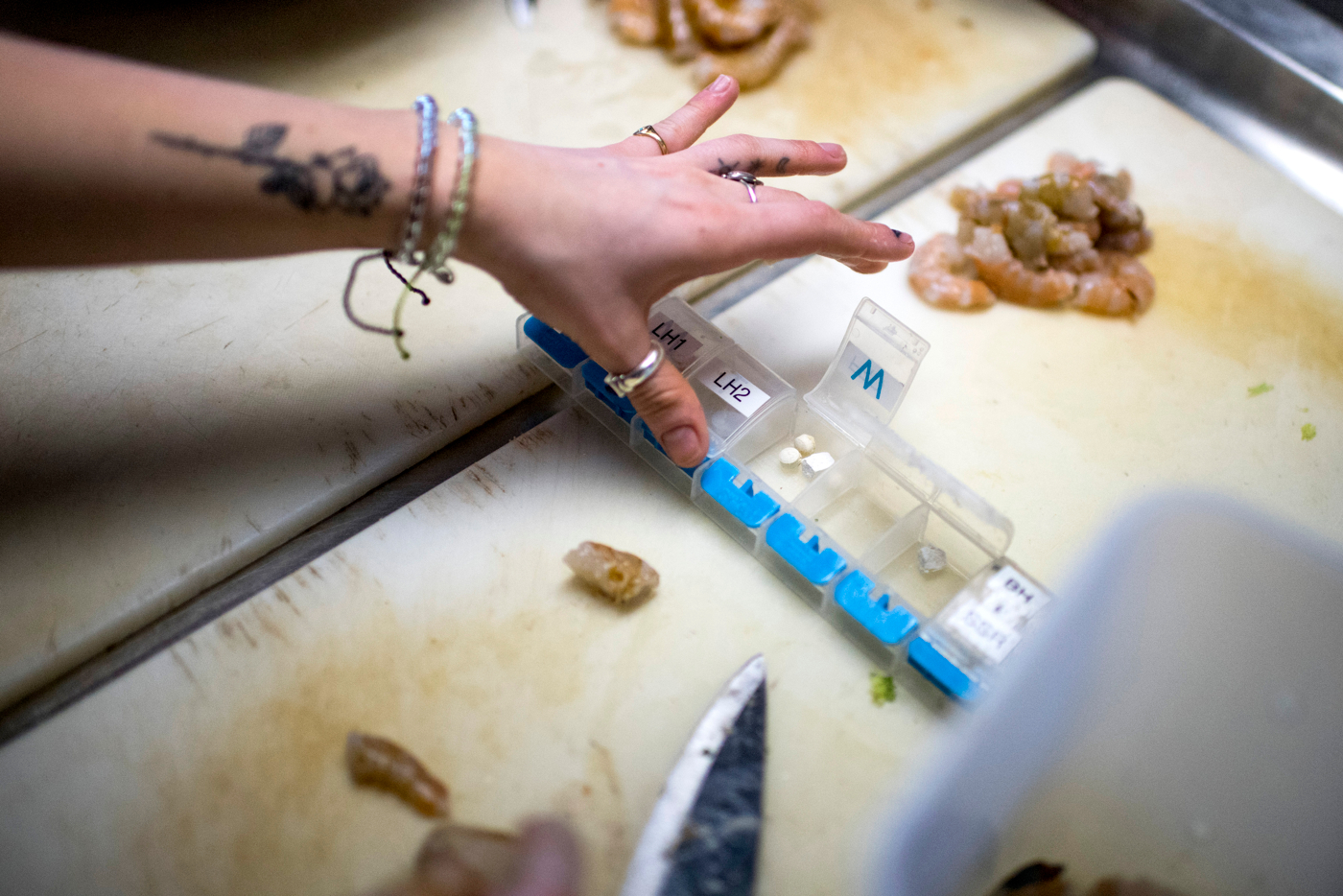
Kai Gravel-Pucillo, a second-year environmental science student, is waist-deep in the chilly water with the African penguins, a species that is critically endangered in the wild. Two juveniles inch closer to the edge of their rocks, eyeing his bin of fish as he makes a note on his clipboard.
For Gravel-Pucillo, the co-op was an opportunity to continue working with birds. He had previously helped care for raptors at a rehabilitation center.
“I wasn’t too sure if that was the direction I wanted to go in, but I’ve had a lot of time here working with penguins and I really love it,” he said. “I’m hoping I’ll be able to keep working at an aquarium in the future or work with birds some more. They’re very fun to work with and they’re very intelligent.”
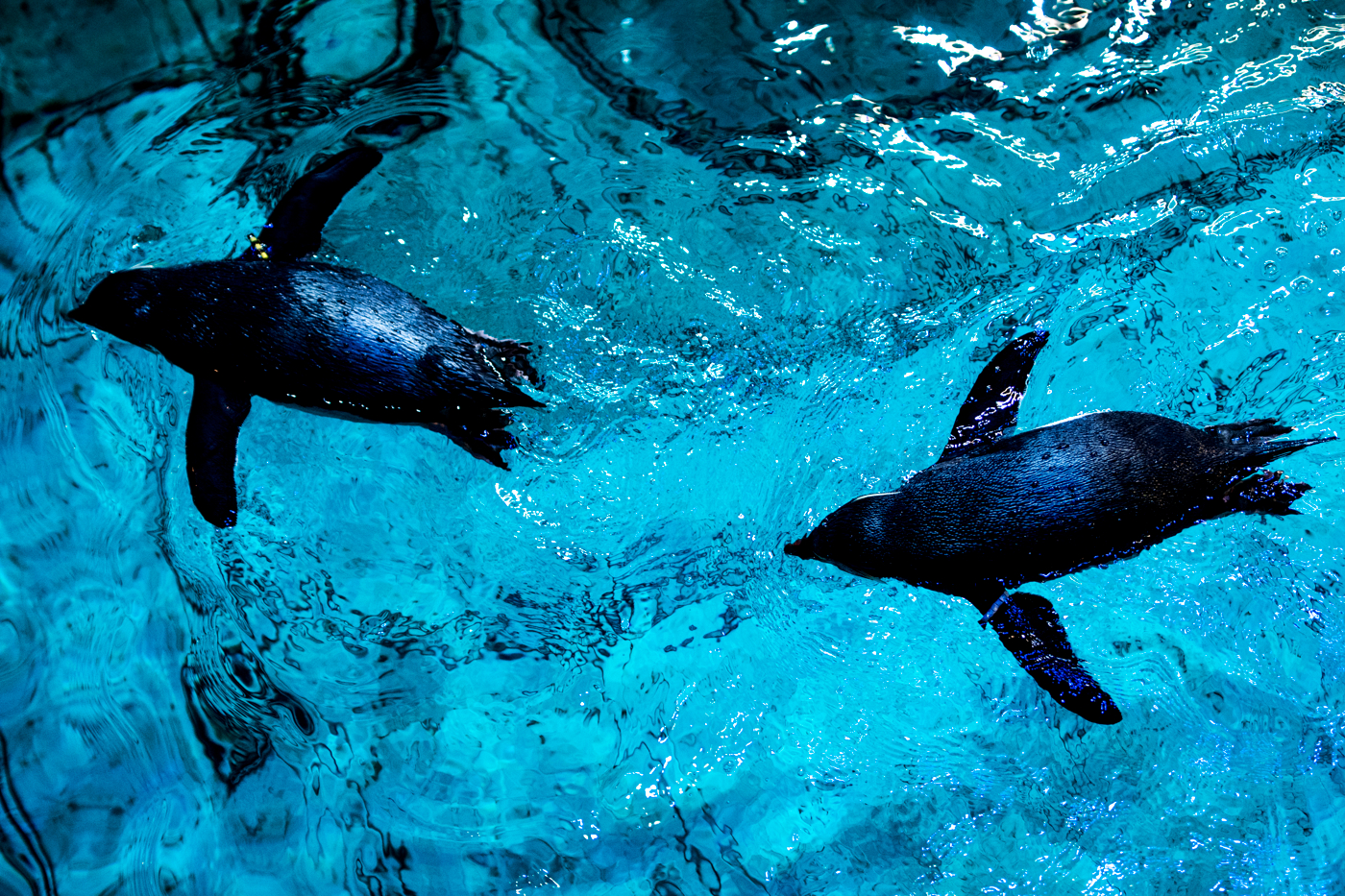
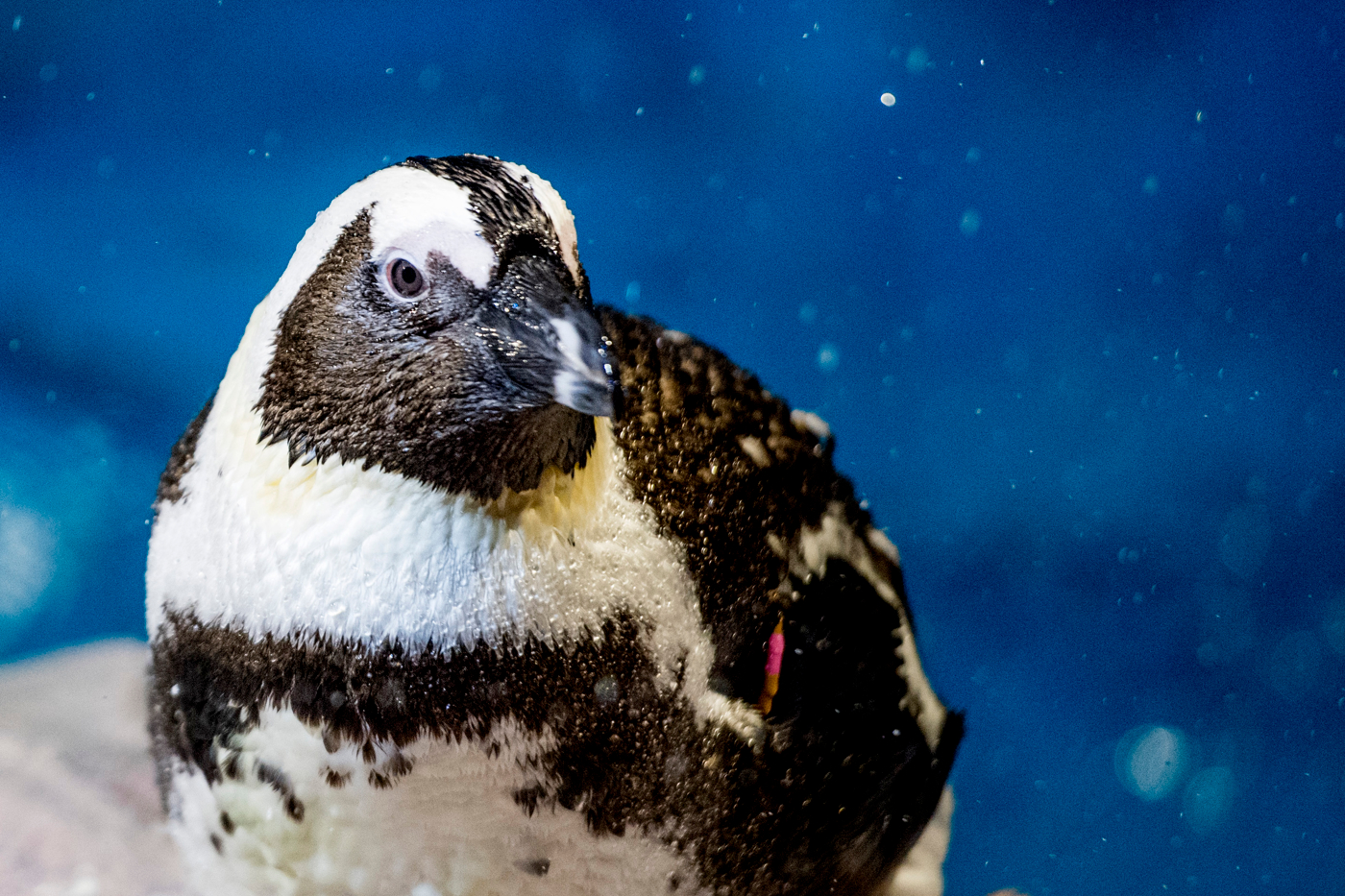
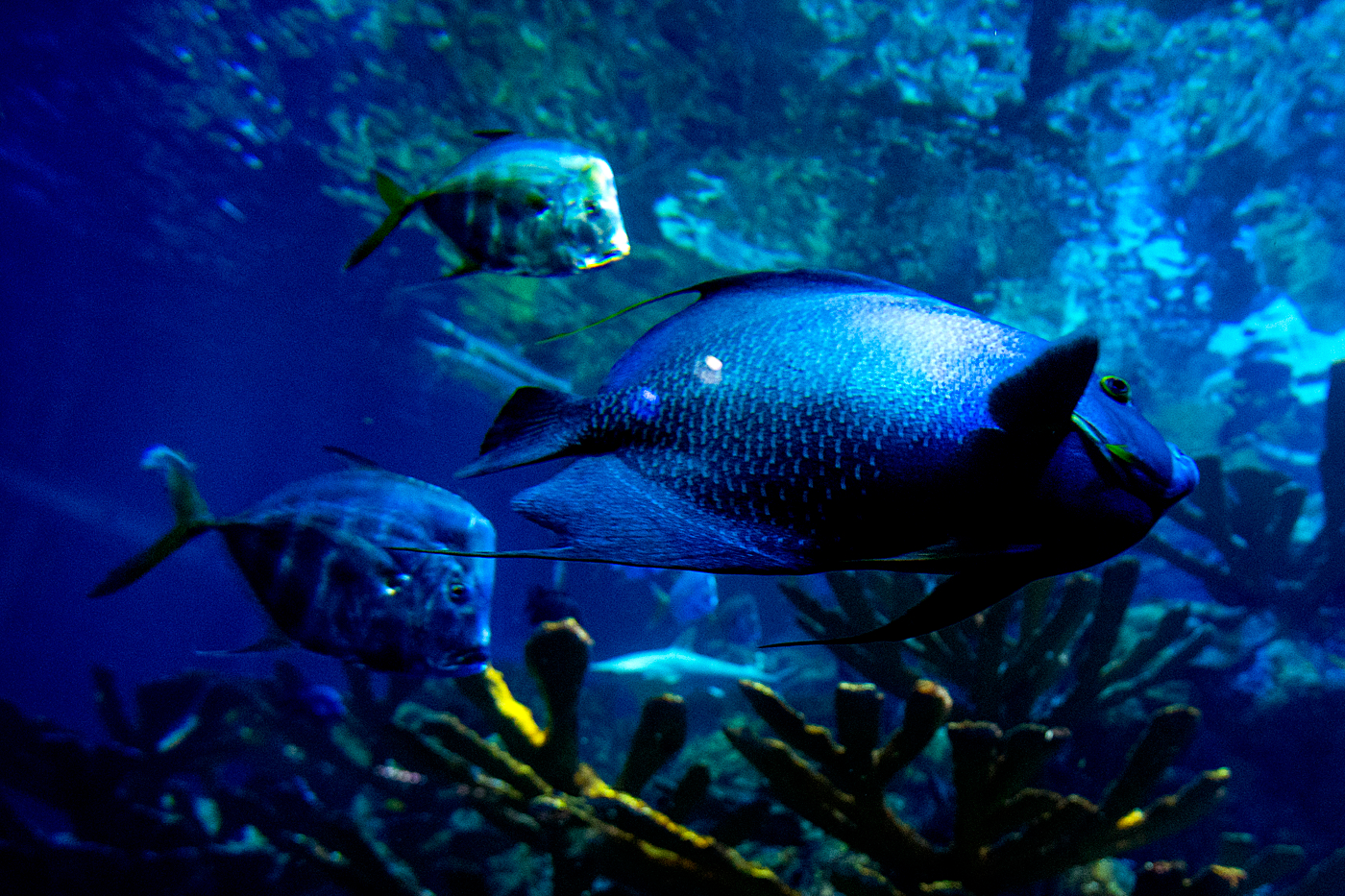
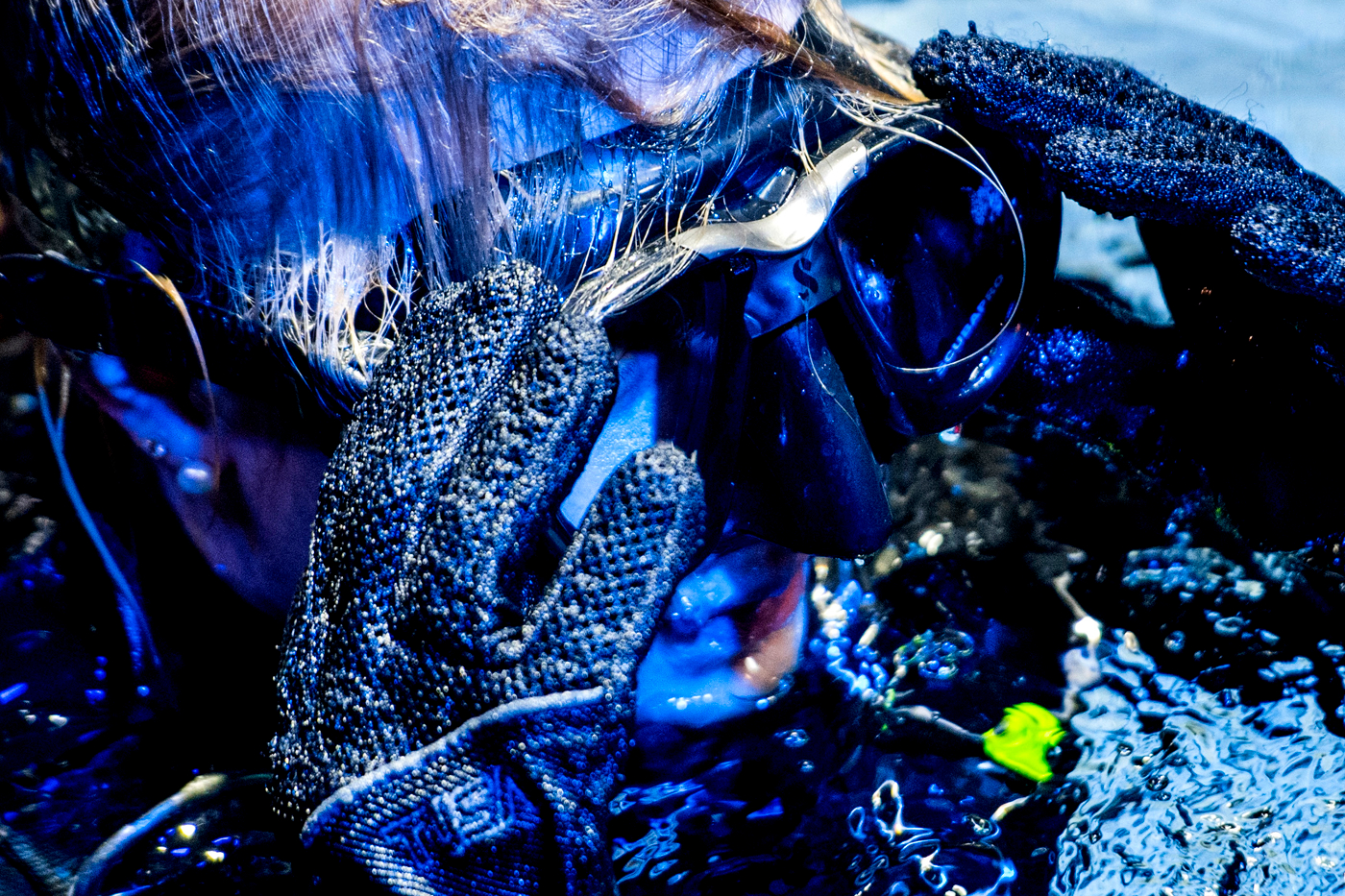
Like Campbell, the two penguin co-ops have had time to learn the process of caring for these animals and are now taking on more responsibility.
“They’re excited to get to know the penguins, their individual behaviors, and the work that goes into being an aquarist in a zoo or aquarium setting, but also all these soft skills too,” says Eric Fox, who is the penguin colony supervisor. “The ability to work as a good team player and the leadership skills that are going to be so critical to whatever career path they follow.”
The co-ops arrive at 8 a.m., along with volunteers and other staff members, to get everything ready for the morning feedings. Cullis and Gravel-Pucillo sort through piles of thawed sardines, capelin, herring, anchovies, and smelt to ensure the penguins are getting the best fish. Campbell and her colleagues in the giant ocean tank spend the first hour of the day dicing fish and clams, removing the stiff pens and beaks from thawed squid, and preparing all the other meats and veggies necessary to satisfy an entire ecosystem.
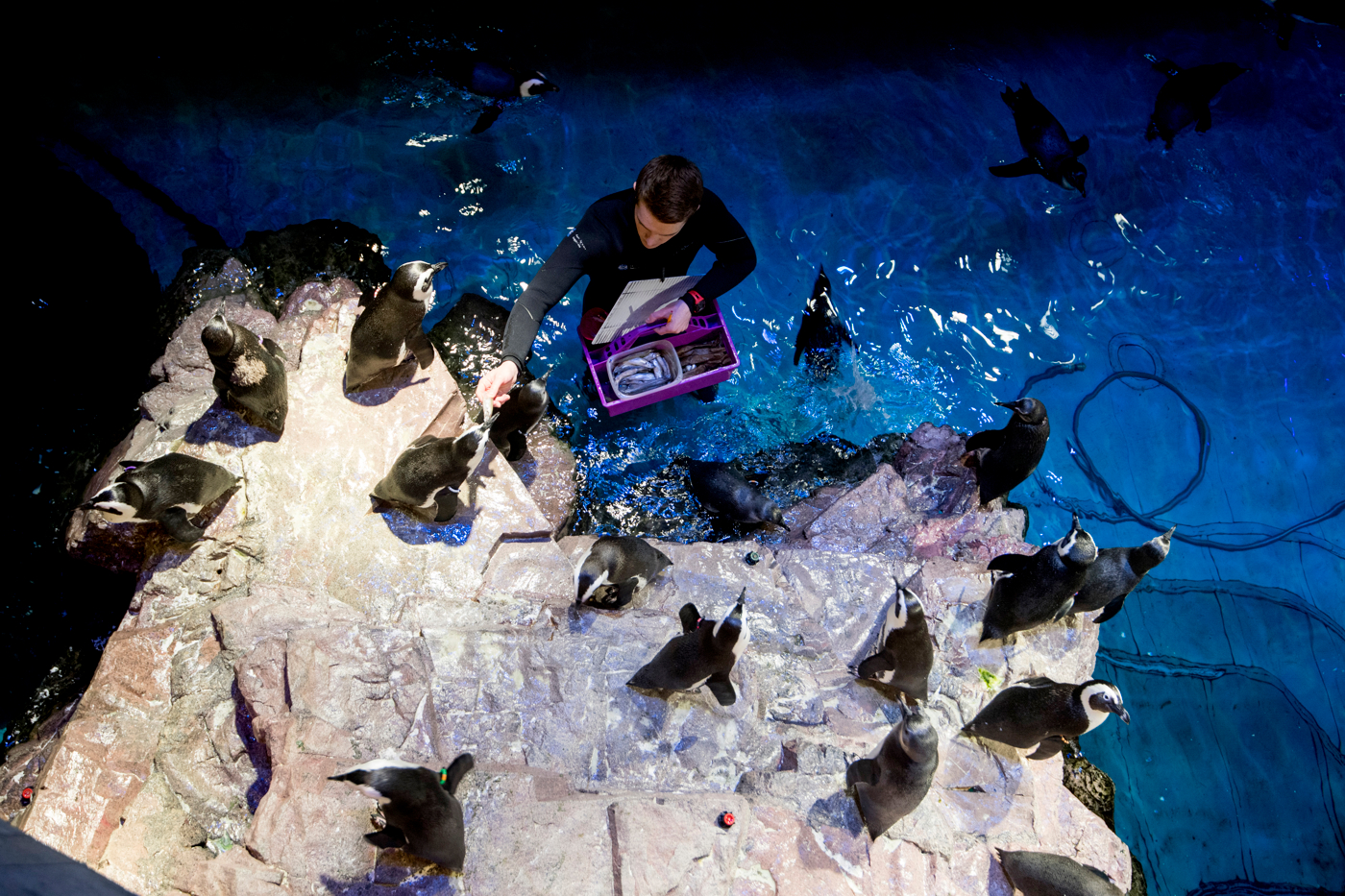
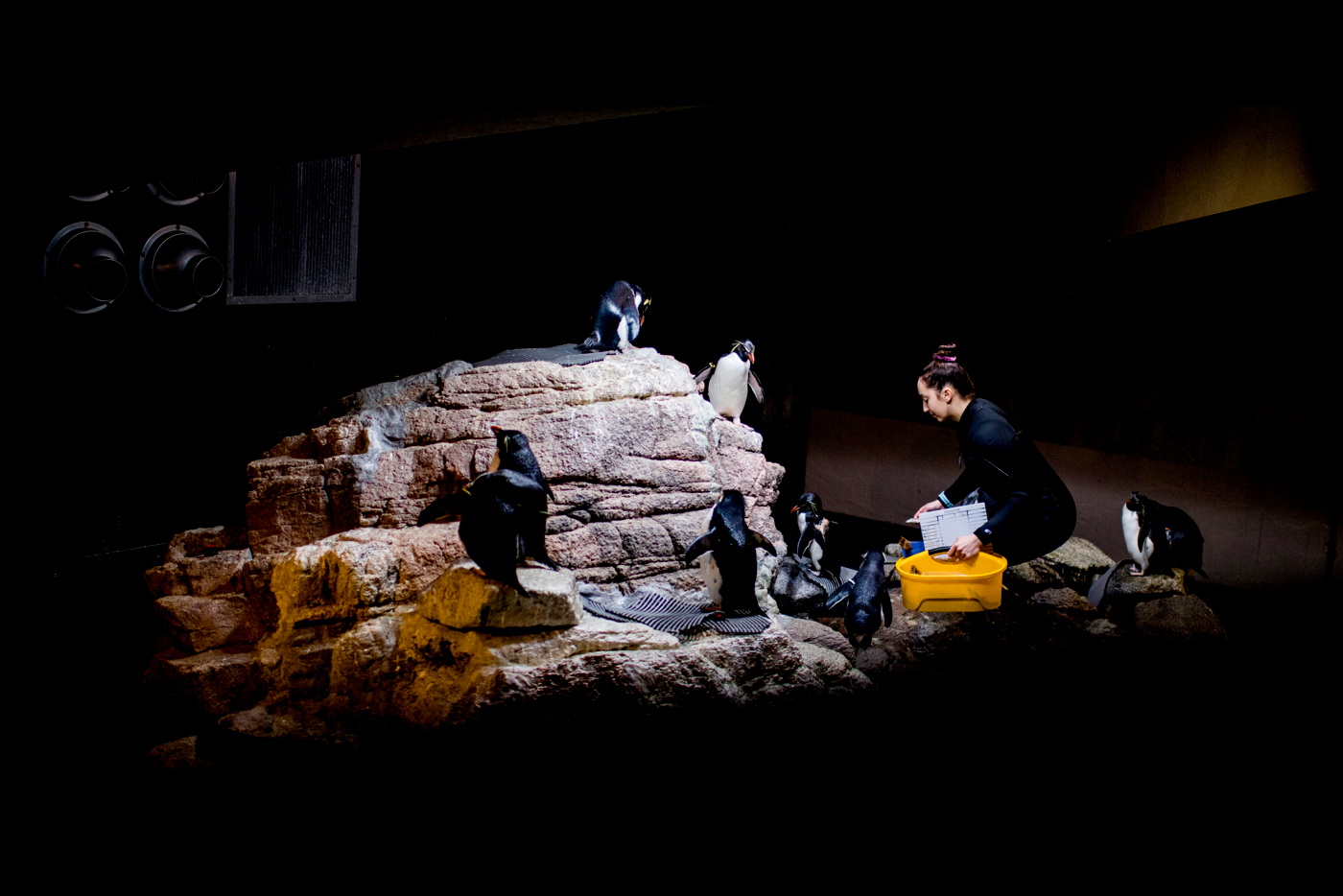
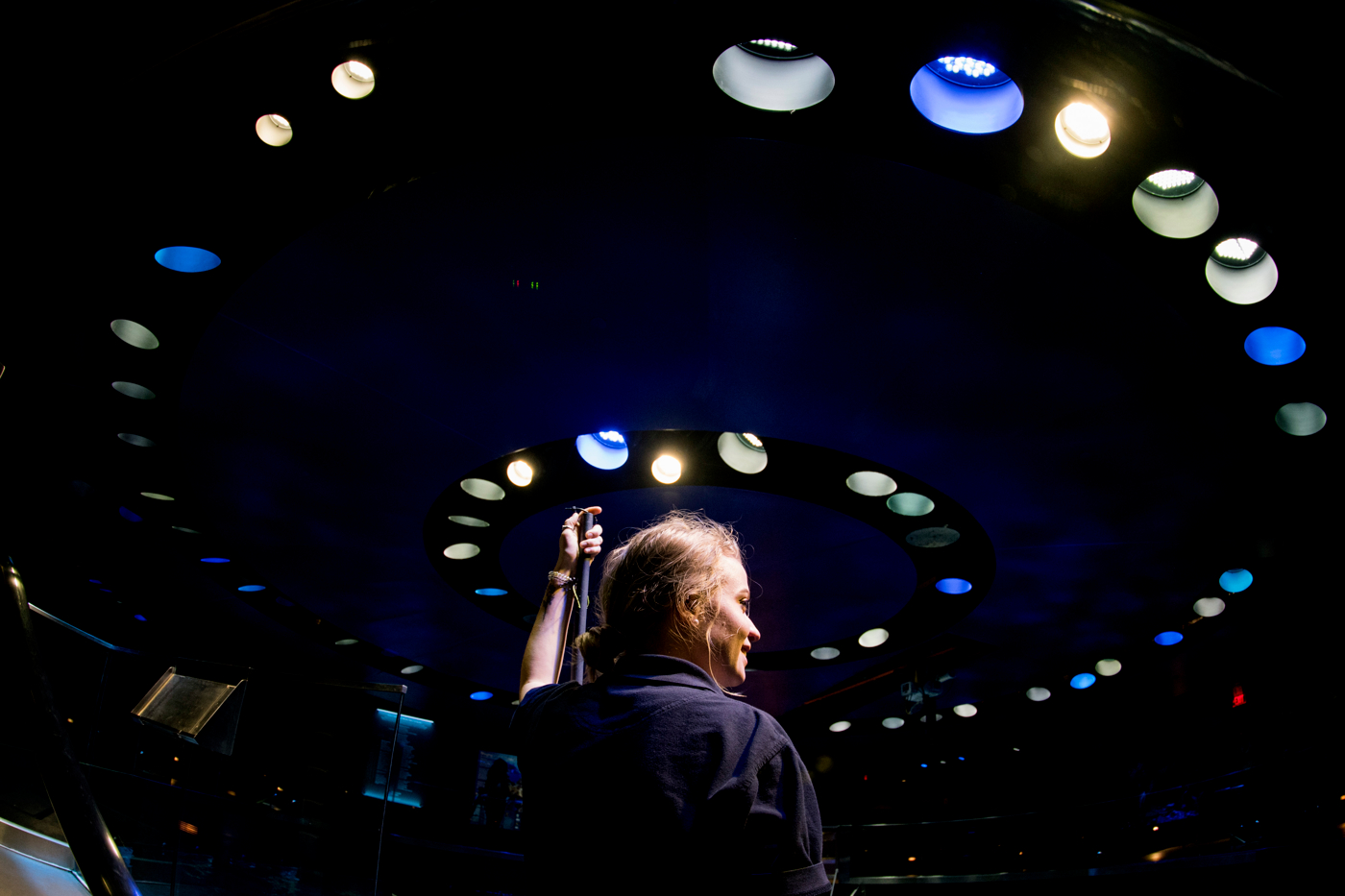
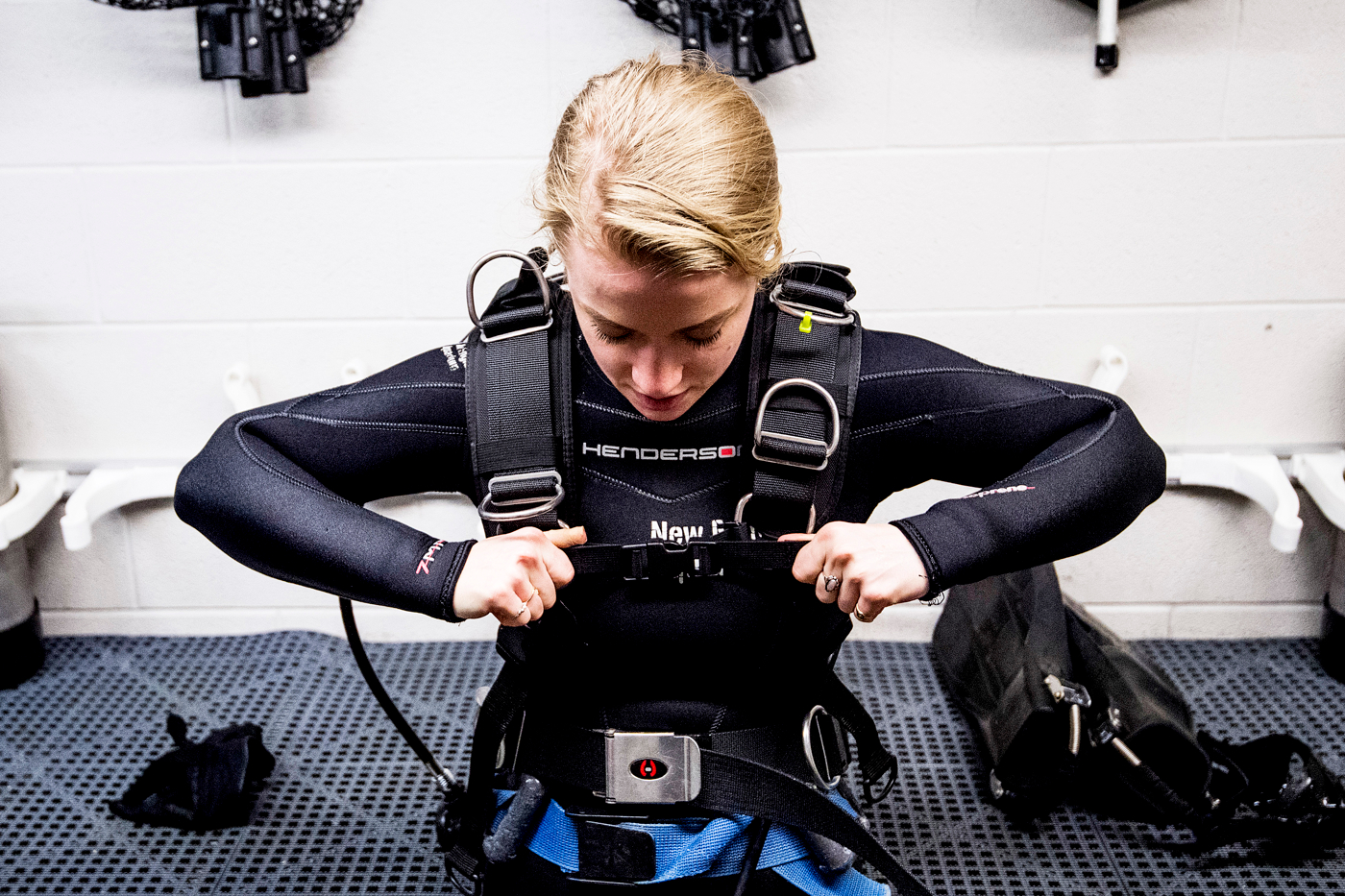
They also have to make sure animals are getting all the vitamins or medications they need. They monitor their charges for any changes in behavior and have learned to hide any pills in the animals’ favorite foods.
“It’s a labor-intensive job,” says Fox. “At 8am you hit the ground running. There’s a lot of prep work involved to feed over 100 penguins and then you do it all again for the afternoon feeding.”
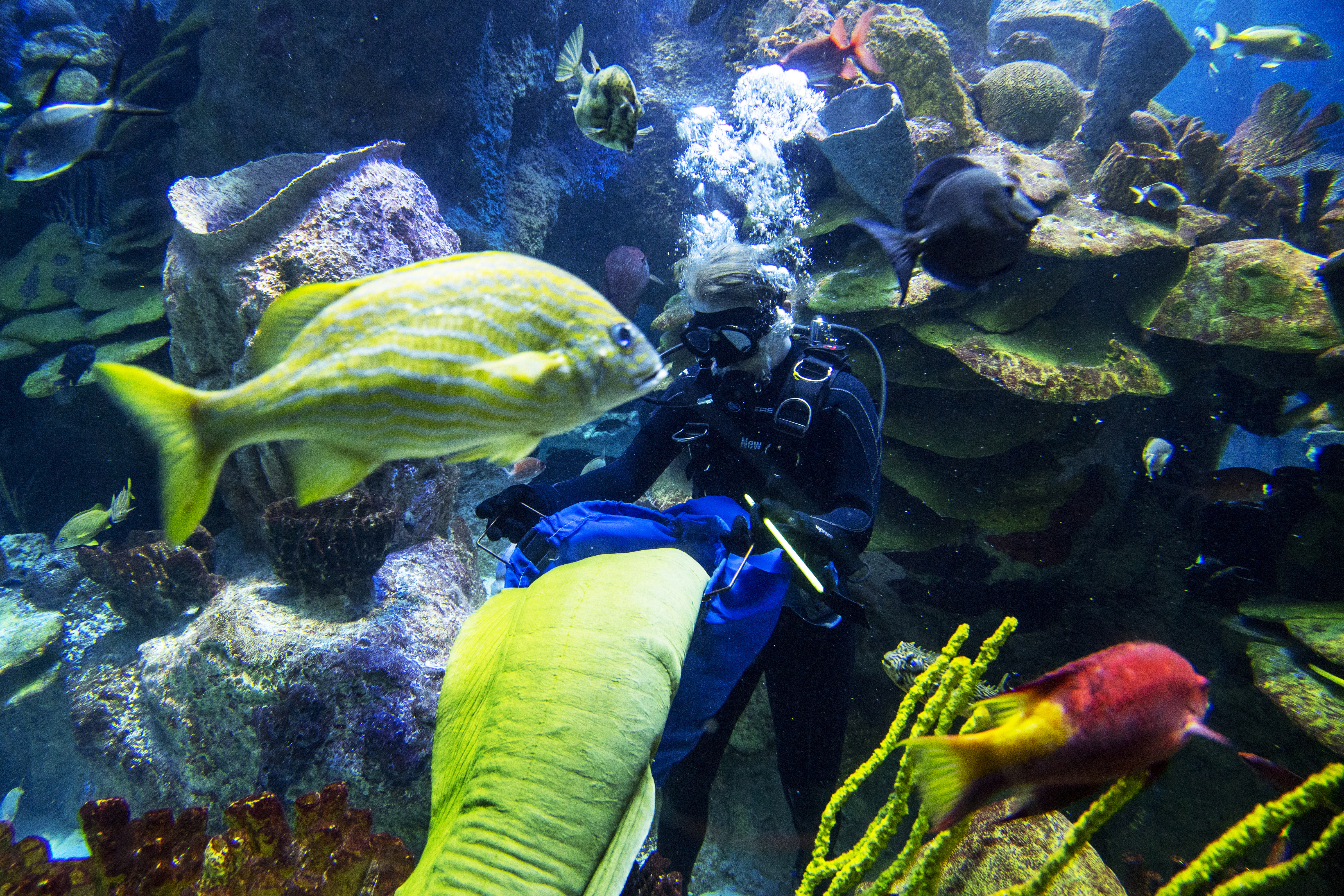
Marilyn, a large moray eel, dives into a bag held by Abigail Campbell for her morning meal in the giant ocean tank. Photo by Matthew Modoono/Northeastern University
As soon as the co-ops are done feeding the penguins, they set to scrubbing the exhibit. This also gives them an opportunity to chat with the aquarium’s visitors, who often ask questions while they work. Cullis and Gravel-Pucillo give more formal presentations as well.
“It gives you an opportunity to connect with the visitors and explain that it’s not just about seeing penguins here in Boston, it’s about getting the opportunity to help save them in the wild as well,” Gravel-Pucillo says.
Campbell doesn’t give formal presentations, but she spends plenty of time waving at visitors through the glass windows of the giant ocean tank.
“I hear about jobs where you’re sitting behind a desk all day, and that’s not at all what I’m doing,” she says. “It’s just amazing, coming to work and getting to go scuba diving every day on a Caribbean reef in Boston.”
For media inquiries, please contact media@northeastern.edu
